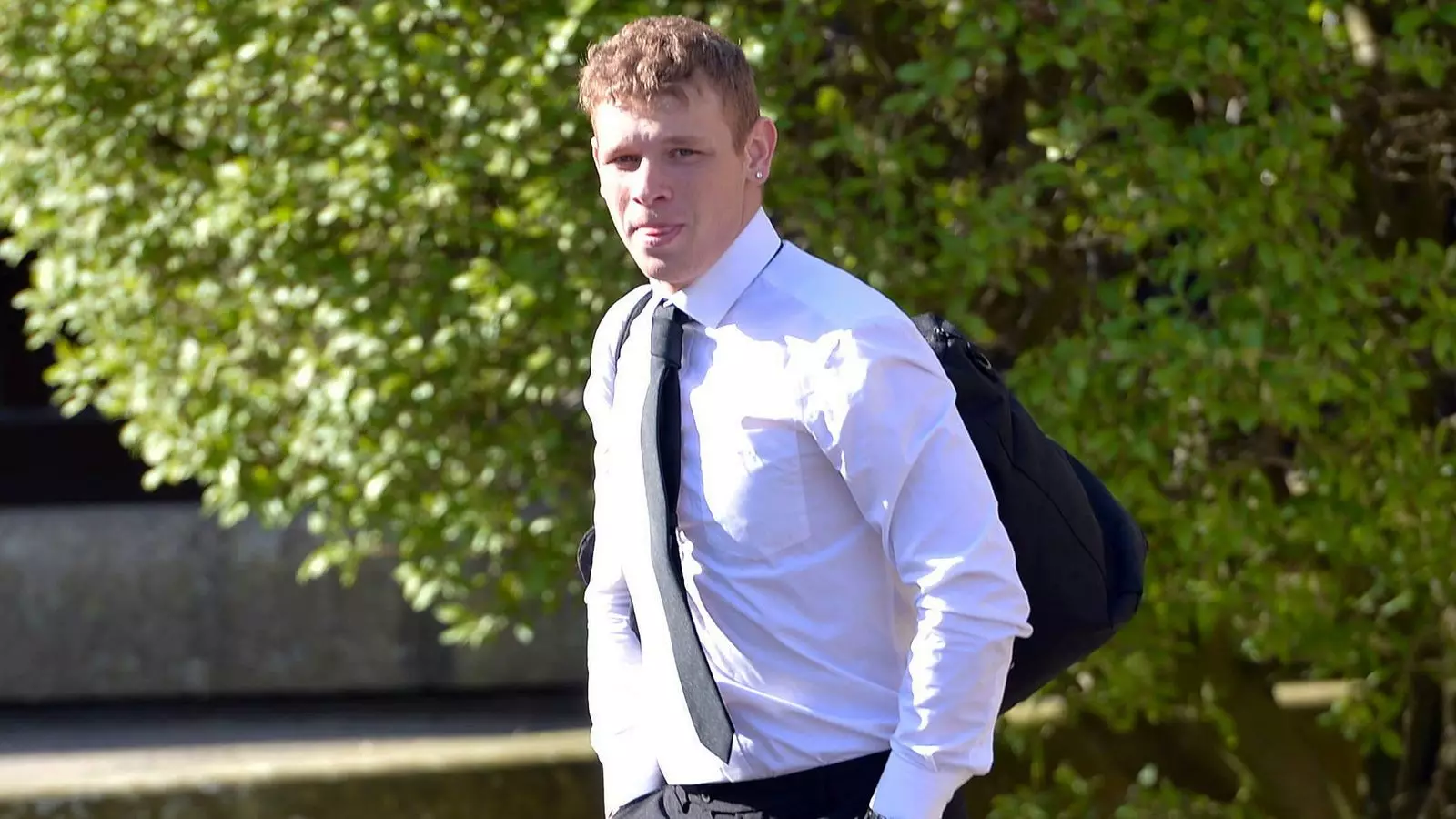In a disturbing case that has sparked outrage, a man named Sean Hogg, 22, was convicted of raping a 13-year-old girl on multiple occasions in Dalkeith Park, Midlothian, in 2018. However, his conviction is now under review after prosecutors admitted to “mistakes” made during the trial. The decision to spare Hogg from a prison sentence and instead impose a community payback order with 270 hours of unpaid work has been met with widespread criticism and condemnation.
During the trial, it was revealed that both the advocate depute and the trial judge had made significant errors that could have impacted the outcome. They failed to seek additional details from witnesses and provide adequate directions to the jury. The Crown Office has acknowledged these mistakes, stating that “mistakes were made at the trial.” These errors raise serious concerns about the fairness and integrity of the legal proceedings.
One of the main issues highlighted during the review process is the trial judge’s decision to direct the jury on distress. The judge referred to the girl’s distress in an incident where there was no evidence of penetration by Hogg, which was described as a “factual error on behalf of the judge.” This erroneous instruction could have influenced the jury’s perception of the case and impacted their decision-making process.
At the appeal hearing, Judge Lord Matthews expressed his concerns about the quality of evidence presented during the trial, describing some of it as “worthless.” This raises questions about the strength of the prosecution’s case and the accuracy of the verdict. Donald Findlay KC, representing Hogg, argued that there had been a “miscarriage of justice,” emphasizing that the verdict should not have been allowed to stand. These revelations cast doubt on the credibility and reliability of the entire legal process.
The Impact on the Victim and the Public Interest
The victim, who is now 18 years old, has been left devastated by the turn of events. Her courage in coming forward and telling the truth should be acknowledged and respected. The public interest in this case is significant, as it involves the safety and well-being of our society’s most vulnerable members. It is crucial that the trial is fair and transparent to maintain public trust in the judicial system.
Given the factual errors, inadequate evidence, and questionable sentencing, it is imperative that Scotland’s most senior judges thoroughly review this conviction. The possibility of quashing the conviction must be seriously considered to rectify any injustices committed during the trial. The integrity and reputation of the criminal justice system are at stake, and a fair and just outcome is essential to ensure justice for both the victim and the accused.
The case of Sean Hogg raises significant concerns about the fairness and effectiveness of our legal system. Mistakes made during the trial, ranging from errors in instructing the jury to the presentation of weak evidence, highlight the urgent need for a thorough review and potential quashing of the conviction. The impact on the victim and the public interest further emphasize the importance of achieving a fair and just outcome. It is only through this process that trust in the criminal justice system can be restored and the well-being of our society can be protected.


Leave a Reply